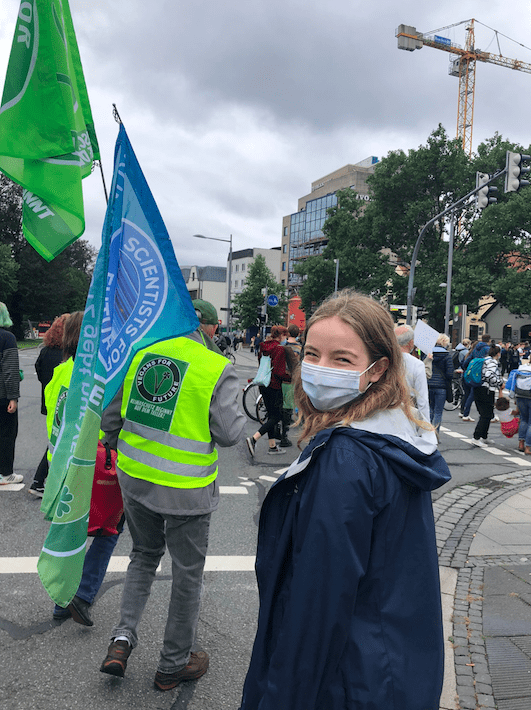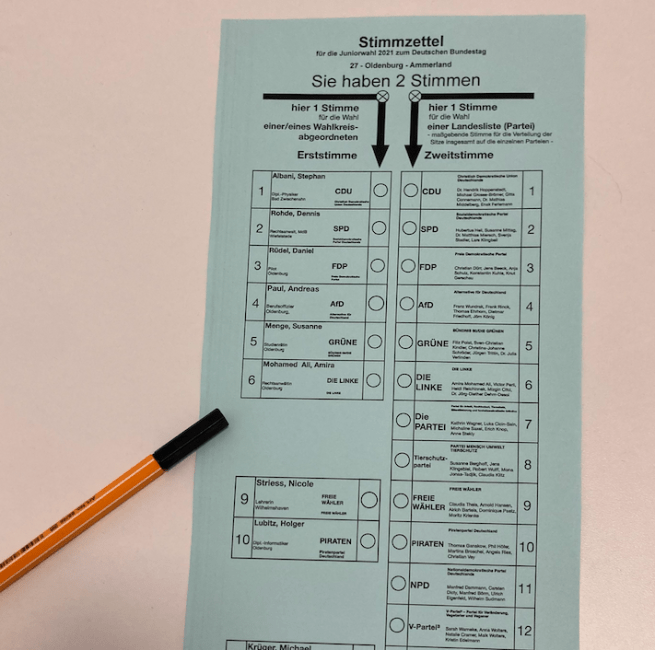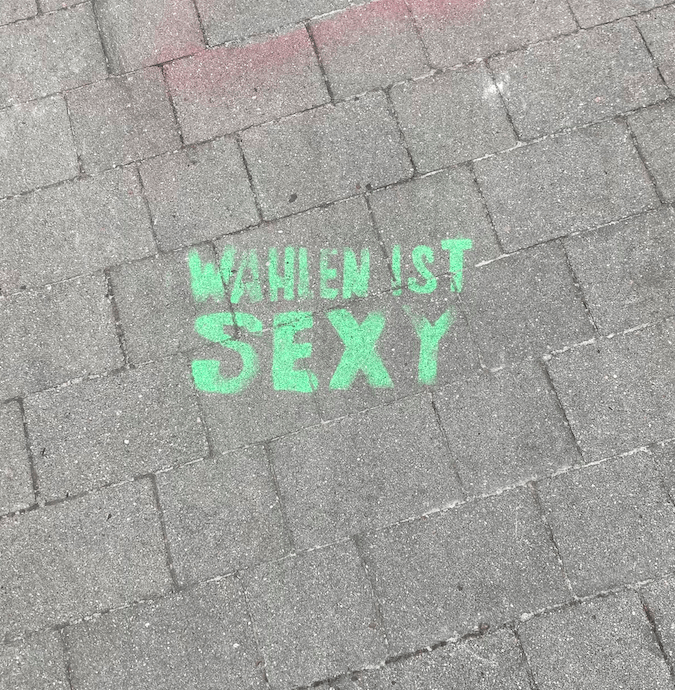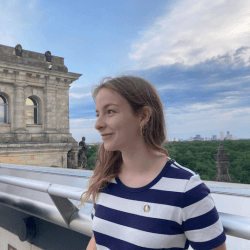German Politics, Part Two
Today, Germans elected their federal representatives in the Bundestagswahl. I accompanied my host mom to our neighborhood Wahllokal, and while she was voting, I reflected on some of the opportunities I’ve had since my last politics post to learn about the election system and political dialogue in Germany.
Among these opportunities was my school’s Junior Wahl, a simulation of the Bundestagswahl. On the Stimmzettel, or ballot, for the Bundestagswahl, voters have two choices to make. One vote goes to their preferred party, and the other to their preferred candidate. Unlike Americans, Germans do not directly elect their Bundeskanzler*in: rather, the federal representatives elected in the Bundestagswahl go through their own voting process to elect the Bundeskanzler*in. Though our school simulation (thankfully) did not have any consequences, it was fun to go through the motions of voting. I was a Model United Nations nerd in the US, so I was very excited to relive a bit of that.
After school, students were invited to a performance of Aufspüren, Jagen, Entsorgen, a commentary on the use of language in radical politics. The script was completely derived from political publications, speeches, and political comments online. The play also dealt with the relationship between online echo chambers and hate crimes, or, as a classmate phrased it, how “words lead to actions.” This is an issue that unfortunately also plagues my home country, and after the performance, I had a conversation with a couple of other students about the balance between free speech and keeping Germany safe for everyone.
Last Friday I attended a Klimademonstration, which was unlike anything I have experienced before. Though I participated in protests in my hometown, they were relatively small, whereas the one I attended here had several thousand protestors. People of all ages, including elderly couples, families with young children, and young adults, walked through Oldenburg for roughly an hour, chanting and occasionally stopping traffic. With many aspects of German politics, I am a bystander. This was a rare opportunity to act as a participant. The climate crisis is serious and is not defined by geographic or cultural borders, and I appreciated the chance to interact with Germans for a cause that I am also passionate about.
On the flip side, I’ve also seen the election cause tension around Oldenburg. While out with a friend yesterday, we passed several political booths making their last impressions before the election. Among them was the AfD, a party on the far right that stands against immigration and the European Union. On the other side of the street, a group of protestors had gathered and were chanting anti-facism slogans.
I’m in a unique situation. If this election were taking place in America, I would likely feel a lot more anxiety surrounding the future of my country. I’ve had the privilege to observe and learn from this election through a (relatively) objective lens. What I’ve experienced here has been both similar and radically different from the political climate in the US. In any case, this is an exciting time to be an exchange student, and I’m curious to see the results of the election.



